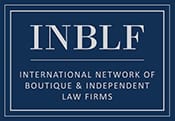Late news is good news
Eric F. Greenberg, Attorney-at-Law
February, 2018
FDA finally did right by the packaging industry recently, but the way they did it is worth a little discussion.
As is often the case, this column will discuss the how as part of explaining the what.
First, the what. FDA said it won’t enforce the requirement of supplier verification that grew out of the new Food Safety Modernization Act (FSMA) of 2011 for foreign companies that supply food contact materials.
It’s the culmination of a years-long, tortuous saga over the proper interpretation of a provision of FSMA. Part of that law’s multi-front effort to tighten food safety practices among food manufacturers was to require a series of new steps for food makers to follow, including, most famously, preventive controls, a set of requirements similar to Hazard Analysis and Critical Control Points programs. There was also a new specific requirement for manufacturers to take one or another step to verify their food suppliers’ compliance. That requirement was phrased one way if the food supplier was domestic, in which case the verification steps would be part of the company’s supply chain controls.
But if the supplier was foreign, a separate new regulation called for one or another step to verify that foreign supplier’s compliance with requirements like those of FDA, protecting against hazards and assuring the food was not adulterated or misbranded. The rule says food importers are to analyze the hazards presented by the foods, evaluate their foreign suppliers’ performance and the risk involved in importing from them, and conduct appropriate verification activities, which might include audits on-site, testing of samples, or review of records.
And here’s where things got weird. Industry representatives recognized that those Foreign Supplier Verification Program (FSVP) regulations fell into a semantic trap in the Federal Food, Drug and Cosmetic Act for which packaging makers are always on the lookout. Because the law defines food to include food components, it therefore includes food contact materials that might reasonably migrate into food. Therefore, any time a new law or regulation makes a new requirement for food, packaging legal observers such as your columnist usually ask, “What do you mean by ‘food?'” Do you include food packaging, or not?
A plastics industry trade group specifically discussed the issue with FDA staffers and received assurances that food makers wouldn’t have to verify the compliance with law of their foreign suppliers of food contact materials. This was logical because the inspiration for the verification program was the need to identify and protect against safety hazards, and clearly food contact materials don’t present many if any safety hazards of the type foods do, such as microbial contamination.
FDA appeared to agree that food contact materials should be excluded from this requirement, but in November 2015 when FDA issued its final regulation about the foreign supplier program, it surprised all outside observers by saying quite clearly that they would be included after all. At the time, FDA explained that the FSMA law’s wording couldn’t justify a wholesale exemption of food contact materials.
Then it was time for the industry lobbyists to get back to work and try to get FDA, again, to see reason and exclude foreign food contact materials suppliers’ products and systems from having to be verified as compliant. At one point, in recognition of the continuing controversy and to give itself more time to think, FDA extended the compliance deadline by two years, until 2019, for imported food contact substances.
Finally, FDA said it agreed. That brings us to the how. FDA announced it intended to “exercise enforcement discretion for these food contact substances with regard to the FSVP requirements.”
If you haven’t found yourself using the phrase “enforcement discretion” in your everyday life, you are not alone. It’s a legalistic oddity, and FDA uses the phrase now and then to mean, in essence, “We will leave you alone about this provided you meet certain conditions, even though it otherwise could be viewed as against the law.” Rather than go to Congress to get the law changed, FDA is saying it’ll make this issue such a low priority as to make it essentially lawful. For now, anyway. FDA reserves the right to change its mind if new safety concerns arise later.
Here, FDA based its decision on a variety of self-evidently good reasons, including the fact that food contact substances are already the subject of a set of regulatory controls that help assure their safety, and that consumers are exposed to very low levels of these substances compared with substances used as ingredients in foods as such.
The global regulatory director for packaging at Coca-Cola, Jim Huang, has been watching the saga closely. “The enforcement discretion reflects FDA’s confidence in the safety of food packaging as currently regulated,” he says. “This decision is not possible without the robustness of the U.S. framework and the pervasiveness of its global reach.”
Makers and users of food contact substances still have to assure that the substances comply with FDA requirements for their intended uses, but FDA won’t require food makers to take any of the extra steps called for under FSMA regarding those food contact materials.
As a kind of incidental bonus, FDA in its announcement made a remark that appears to set out some policy about food contact substances supplied by non-foreign suppliers, i.e., domestic ones. The agency said “food contact substances are not subject to the supply-chain program requirements in the human food preventive controls regulation,” which it said only applies to “hazards requiring a supply-chain applied control,” and “FDA has determined that there are no hazards associated with food contact substances that…[require] a supply-chain control” under the regulation. Thus, according to this quiet little afterthought in the announcement about foreign suppliers, FDA said that food makers don’t have to verify their domestic food contact substances suppliers’ compliance, either. If FDA has made this kind of clear interpretive remark previously, they certainly didn’t do it very loudly. PW
Eric Greenberg can be reached at [email protected], or visit his firm’s Web site at www.ericfgreenbergpc.com.
This article is informational only and is not intended as, and should not be considered to be, legal advice.
Be sure to check for any updated information about the topics discussed in this article.


